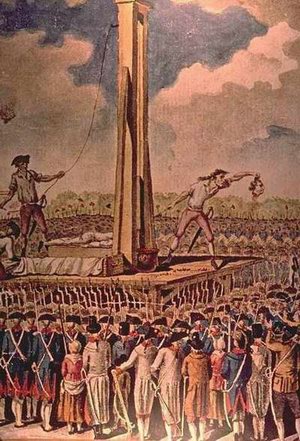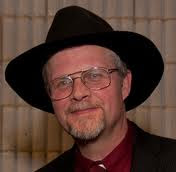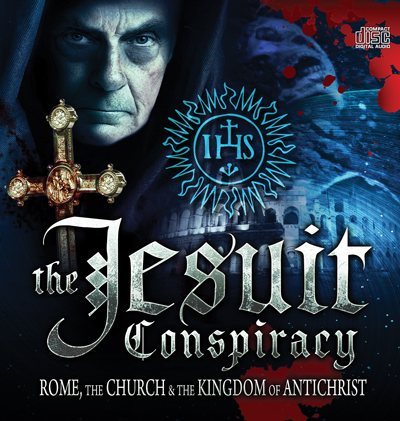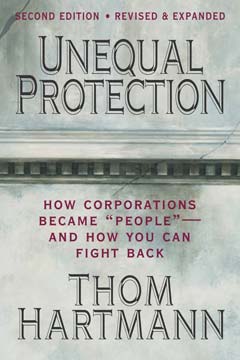http://www.blogtalkradio.com/drakeshelton/2014/05/30/the-doctrine-of-the-trinity-exposed-part-4
The Doctrine of the Trinity Exposed Part 4 Wednesday, May 28 2014
Restoring the South- Radio 7:15 am
Plato Against Democracy Part II Wednesday, May 28 2014
Restoring the South- Radio 7:14 am
The Manufacture of Madness: A Comparative Study of the Inquisition and the Mental Health Movement Tuesday, May 27 2014
Romanism 2:31 pm
Christians Argue that Yahushuwah spoke Greek Tuesday, May 27 2014
Natsarim 3:29 am
John Locke, Thomas Jefferson and James Madison Against Absolute Equality Monday, May 26 2014
Uncategorized 6:18 am
 Get this……..I am often accused of being……….wait for it……………insane…………for refusing to believe gender, racial and income equality. I often retort that these ideas are specifically products of the Marxist tradition. I just want to set the record straight that our founding Fathers, for all of their inexcusable admirations for the Enlightenment were not quite naive enough to even consider equality:
Get this……..I am often accused of being……….wait for it……………insane…………for refusing to believe gender, racial and income equality. I often retort that these ideas are specifically products of the Marxist tradition. I just want to set the record straight that our founding Fathers, for all of their inexcusable admirations for the Enlightenment were not quite naive enough to even consider equality:
John Locke, 2nd Treatise, Chapter V,
“Sec. 34. God gave the world to men in common; but since he gave it them for their benefit, and the greatest conveniencies of life they were capable to draw from it, it cannot be supposed he meant it should always remain common and uncultivated. He gave it to the use of the industrious and rational, (and labour was to be his title to it;) not to the fancy or covetousness of the quarrelsome and contentious. He that had as good left for his improvement, as was already taken up, needed not complain, ought not to meddle with what was already improved by another’s labour: if he did, it is plain he desired the benefit of another’s pains, which he had no right to, and not the ground which God had given him in common with others to labour on, and whereof there was as good left, as that already possessed, and more than he knew what to do with, or his industry could reach to.
…
Sec. 50. But since gold and silver, being little useful to the life of man in proportion to food, raiment, and carriage, has its value only from the consent of men, whereof labour yet makes, in great part, the measure, it is plain, that men have agreed to a disproportionate and unequal possession of the earth, they having, by a tacit and voluntary consent, found out, a way how a man may fairly possess more land than he himself can use the product of, by receiving in exchange for the overplus gold and silver, which may be hoarded up without injury to any one; these metals not spoiling or decaying in the hands of the possessor. This partage of things in an inequality of private possessions, men have made practicable out of the bounds of society, and without compact, only by putting a value on gold and silver, and tacitly agreeing in the use of money: for in governments, the laws regulate the right of property, and the possession of land is determined by positive constitutions.”
James Madison, Federalist Paper 10,
“The second expedient is as impracticable as the first would be unwise. As long as the reason of man continues fallible, and he is at liberty to exercise it, different opinions will be formed. As long as the connection subsists between his reason and his self-love, his opinions and his passions will have a reciprocal influence on each other; and the former will be objects to which the latter will attach themselves. The diversity in the faculties of men, from which the rights of property originate, is not less an insuperable obstacle to a uniformity of interests. The protection of these faculties is the first object of government. From the protection of different and unequal faculties of acquiring property, the possession of different degrees and kinds of property immediately results; and from the influence of these on the sentiments and views of the respective proprietors, ensues a division of the society into different interests and parties.
The latent causes of faction are thus sown in the nature of man; and we see them everywhere brought into different degrees of activity, according to the different circumstances of civil society. A zeal for different opinions concerning religion, concerning government, and many other points, as well of speculation as of practice; an attachment to different leaders ambitiously contending for pre-eminence and power; or to persons of other descriptions whose fortunes have been interesting to the human passions, have, in turn, divided mankind into parties, inflamed them with mutual animosity, and rendered them much more disposed to vex and oppress each other than to co-operate for their common good. So strong is this propensity of mankind to fall into mutual animosities, that where no substantial occasion presents itself, the most frivolous and fanciful distinctions have been sufficient to kindle their unfriendly passions and excite their most violent conflicts. But the most common and durable source of factions has been the various and unequal distribution of property. Those who hold and those who are without property have ever formed distinct interests in society. Those who are creditors, and those who are debtors, fall under a like discrimination. A landed interest, a manufacturing interest, a mercantile interest, a moneyed interest, with many lesser interests, grow up of necessity in civilized nations, and divide them into different classes, actuated by different sentiments and views. The regulation of these various and interfering interests forms the principal task of modern legislation, and involves the spirit of party and faction in the necessary and ordinary operations of the government.”
Thomas Jefferson to John Adams 28 Oct. 1813,
“For I agree with you that there is a natural aristocracy among men. The grounds of this are virtue and talents. Formerly bodily powers gave place among the aristoi. But since the invention of gunpowder has armed the weak as well as the strong with missile death, bodily strength, like beauty, good humor, politeness and other accomplishments, has become but an auxiliary ground of distinction. There is also an artificial aristocracy founded on wealth and birth, without either virtue or talents; for with these it
would belong to the first class. The natural aristocracy I consider as the most precious gift of nature for the instruction, the trusts, and government of society. And indeed it would have been inconsistent in creation to have formed man for the social state, and not to have provided virtue and wisdom enough to manage the concerns of the society. May we not even say that that form of government is the best which provides the most effectually for a pure selection of these natural aristoi into the offices of government? The artificial aristocracy is a mischievous ingredient in government, and provision should be made to prevent it’s ascendancy. [As we shall see, this is what he meant in the Declaration of Independence, not what the Communists mean. DS] On the question, What is the best provision, you and I differ; but we differ as rational friends, using the free exercise of our own reason, and mutually indulging it’s errors. You think it best to put the Pseudo-aristoi into a separate chamber of legislation where they may be hindered from doing mischief by their coordinate branches, and where also they may be a protection to wealth against the Agrarian and plundering enterprises of the Majority of the people. I think that to give them power in order to prevent them from doing mischief, is arming them for it, and increasing instead of remedying the evil. For if the coordinate branches can arrest their action, so may they that of the coordinates. Mischief may be done negatively as well as positively. Of this a cabal in the Senate of the U. S. has furnished many proofs. Nor do I believe them necessary to protect the wealthy; because enough of these will find their way into every branch of the legislation to protect themselves. From 15. to 20. legislatures of our own, in action for 30. years past, have proved that no fears of an equalisation of property are to be apprehended from them.
I think the best remedy is exactly that provided by all our constitutions, to leave to the citizens the free election and separation of the aristoi from the pseudo-aristoi, of the wheat from the chaff. In general they will elect the real good and wise. In some instances, wealth may corrupt, and birth blind them; but not in sufficient degree to endanger the society.”
Jefferson again, Notes on the State of Virginia, Query XIV, (1787)
“It will probably be asked, Why not retain and incorporate the Blacks into the state, and thus save the expense of supplying, by importation of White settlers, the vacancies they will leave? Deep rooted prejudices entertained by the Whites; ten thousand recollections, by the Blacks, of the injuries they have sustained; new provocations; the real distinctions which nature has made; [Here we have Jefferson contradicting the Communist interpretation of his Declaration of Independence. DS] and many other circumstances, will divide us into parties, and produce convulsions, which will probably never end”.
John Locke on the Acquisition of Property and Land Pertaining to the Native Americans Sunday, May 25 2014
Anti-White Racism and Indians 10:24 pm
 John Locke’s 2nd Treatise is fascinating. I have always wondered about what the precise definition is of property pertaining to acquisition of land; mostly because of what happened here in America with the Native Indians.
John Locke’s 2nd Treatise is fascinating. I have always wondered about what the precise definition is of property pertaining to acquisition of land; mostly because of what happened here in America with the Native Indians.
Locke, 2nd Treatise, Chapter V,
“Sec. 41. There cannot be a clearer demonstration of any thing, than several nations of the Americans are of this, who are rich in land, and poor in all the comforts of life; whom nature having furnished as liberally as any other people, with the materials of plenty, i.e. a fruitful soil, apt to produce in abundance, what might serve for food, raiment, and delight; yet for want of improving it by labour, have not one hundredth part of the conveniencies we enjoy: and a king of a large and fruitful territory there, feeds, lodges, and is clad worse than a day-labourer in England.”
http://www.constitution.org/jl/2ndtreat.htm
It appears then that the native Indians were indeed judged by Yahuwah when they were killed off here for their laziness. The supposed majestic way of life of the native indians was anything but. It was a life of poverty and constant bloodshed among their own peoples. They wanted to fight the white man who was supposedly dispossessing him of land he had never settled. His laziness turned out to be his downfall.
How Pagan Philosophy Began Sunday, May 25 2014
Zeigeist 5:16 am
2 Pet. 3:3 Knowing this first, that there shall come in the last days scoffers, walking after their own lusts, 4 And saying, Where is the promise of his coming? for since the fathers fell asleep, all things continue as they were from the beginning of the creation.5 For this they willingly are ignorant of, that by the word of God the heavens were of old, and the earth standing out of the water and in the water: 6 Whereby the world that then was, being overflowed with water, perished
As I demonstrated in my recent movie, (link) when the survivors of Noah’s flood rebelled against Yahuwah they created pagan religion as an extension of real history. Namely, the primordial peoples extended true history, that the first world had been destroyed and that they were beginning the next world, to mean that this restored world was one of an infinite series of worlds that had been destroyed and remade. Thus, there was no creation, and the universe is then an eternal emanation from the substance of the world soul, the monad huperousia, and not made. Pantheism is then established. This continuous succession of worlds required the immortality of the human soul and thus the doctrine of reincarnation to buttress the cyclical nature of all things. That is how it was done folks. I was struck when I thought about how similar this is to a scene in the matrix:
Plato’s Rejection of Democracy Saturday, May 24 2014
Uncategorized 4:08 am
Matt Slick and The Doctrine of the Trinity Exposed Part 3 Thursday, May 22 2014
Theology Proper and Triadology 9:08 am
Matt Slick Hangs Up on Me in the Middle of Our Conversation About the Trinity Wednesday, May 21 2014
Theology Proper and Triadology 3:59 am





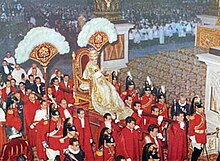



-1-.jpg)

